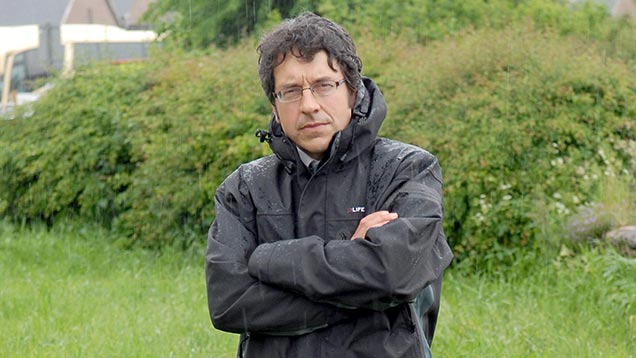Poultry sector accuses George Monbiot of ignorance and ‘guesswork’
 George Monbiot ©Rex Shutterstock
George Monbiot ©Rex Shutterstock Poultry industry representatives have written to The Guardian, explaining that broiler producers take bird welfare extremely seriously and operate to the highest standards to provide the nation with its favourite meat.
The letters – one from NFU poultry board chairman Duncan Priestner and one from British Poultry Council chief executive Andrew Large – were sent in response to a recent feature in the paper by controversial columnist George Monbiot.
In an article headlined “Faeces, bacteria, toxins: welcome to the chicken farm”, Mr Monbiot described broiler sheds as “giant chicken factories, springing up throughout the west of England”. They were “hellish places; you might retch if you entered one”.
See also: Opposition mounts to Golden Valley poultry development
Mr Monbiot criticised the siting of chicken factories near schools, describing the dust as “an exquisite compound of aerialised faeces, dead skin, mites, bacteria, fungal spores, mycotoxins, endotoxins, veterinary medicines, pesticides, ammonia and hydrogen sulphide”.
“Inside chicken factories are scenes of cruelty practiced on such a scale that they almost lose their ability to shock,” he wrote.
“Plagues spread so fast through such factories, broiler businesses often dose their birds with antibiotics.”
While his comments attracted widespread support from Guardian readers, the NFU’s Mr Priestner suggested they were inaccurate and based on guesswork.
“In the UK, 90% of all chicken is produced to Red Tractor standards and this demonstrates that the chicken has met production standards developed by experts, on animal welfare, safety, hygiene and the environment,” he wrote.
“Farmers take the welfare of their birds extremely seriously and therefore to accuse the sector of cruelty is absolutely unfounded.”
Mr Priestner added that the poultry sector was highly regulated. “Poultry farms must hold an environmental permit to operate, which contains measures to protect the environment from pollution to air, land and water.
“This includes monitoring and reducing emissions of dust, ammonia and methane, sustainable storage and use of all effluent and manures, as well as minimising odour and noise off-site.”
He also explained that chickens are not routinely given antibiotics, while legally required withdrawal periods protected consumers on occasions when they were used to treat disease.
Similar views were expressed by the BPC’s Mr Large, who described chicken as “the country’s most popular meat, trusted by consumers as a staple for the dinner table”.
“The British poultry industry does not compromise on the values it shares with consumers, of producing affordable meat in a humane and responsible manner.”
